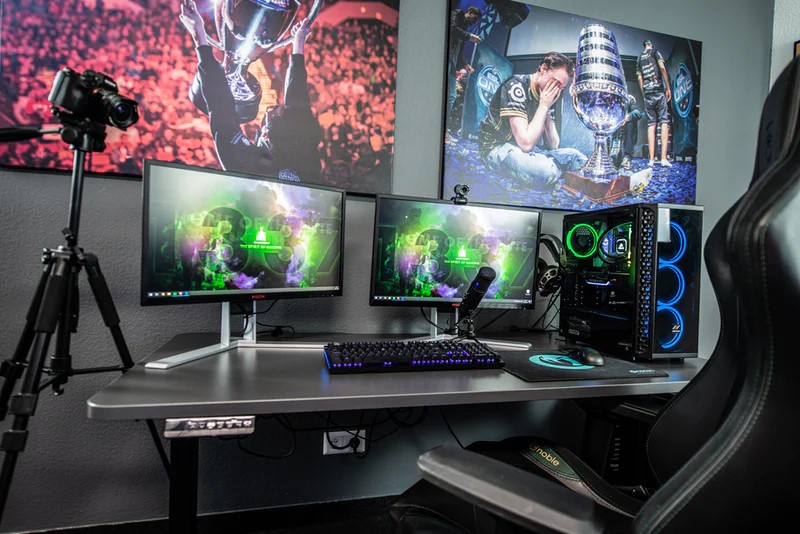This guide will provide all the info you need on the gaming acronym LULW, including its meaning, origin, information on Twitch, and more!
-
Kevin
-
 February 8, 2021
February 8, 2021
-
 Common Questions
Common Questions
 February 8, 2021
February 8, 2021
 Common Questions
Common Questions
This guide will provide all the info you need on the gaming acronym LULW, including its meaning, origin, information on Twitch, and more!
The abbreviation LULW is commonly used on the gaming livestream site Twitch, and in short, is the Twitch version of LOL, or “laughing out loud.” Linguaholic states that this is used as a way to express laughter or humor. This acronym is a variant on LULW, which was the original way to express laughter on Twitch.
LULW is considered a Twitch emote, which is the Twitch version of an emoji. These emotes can be used in the Twitch chat, which is where streamers and audience members can interact during a stream.
LULW stands for “LUL Wide.” This is a variation on the Twitch emote LUL. However, with LULW, the photo was zoomed in and tilted, hence its descriptor as “wider” than LUL.

Twitch.tv is a website where video game streamers can livestream their gameplay to an audience. During these streams, their fans – usually other gamers – can interact with both the chat function, and “emotes.” While the chat box is fairly standard, the emotes are similar to emojis. These are small pictures that people can use in the chat. There are over 3000 emotes that people can use on Twitch, because almost anyone can create their own emotes. These can be photographs or drawings.
Twitch is also one of the largest online hubs for eSports. In April of 2020, they launched a brand new eSports directory that makes it easy for viewers to find player information, live matches, competition leagues, and more, according to Tech Crunch. The goal of the new directory is to make Twitch easier to navigate, particularly when streaming was at a high due to nationwide lockdowns. Twitch reached all-time high streaming numbers due to the COVID-19 pandemic.
In order to understand how LULW came to be, we must first explore its predecessor LUL. According to Know Your Meme, LUL is a Twitch emote of video game reviewer John “TotalBiscuit” Bain, a Twitch user and video game reviewer. In 2013, user ItsJustATank posted a photo of Bain laughing at the Major League Gaming Anaheim conference. Bain began to use this as an emote for his own subscribers, labeling it “cynicalLaugh.” From here, its popularity grew.
However, in 2014, he received a DMCA takedown by the photographer since he was charging for subscriptions to his Twitch streams. Therefore, he was using the photo without authorization. Then, a Reddit user created a similar photo to replace the copyrighted emote.
In 2016, the LUL emote was added to the BTTV Twitch extension, and in 2017, it was officially implemented globally, meaning any Twitch user could then use the emote.
From there, LULW was born. According to Know Your Meme, this is a zoomed in version of the LUL emote that was uploaded in 2016 to the FrankerFaceZ extension. Over the next three years, over 33,000 Twitch channels enables the LULW emoji. This led to LULW being an extremely popular way to express laughter on the platform.
One final variation of the series of LUL emotes is OMEGALUL. According to Urban Dictionary, this is also an emote used on Twitch, and implies a higher intensity than LUL or LULW.
The emote has also been seen outside of Twitch on social media sites like Twitter and Discord. There is one final variation of LULW, which is LOLW. For the LOLW emote, the emote has a yellow tint and blue tears coming from the eyes, paying homage to the Face With Tears of Joy emoji.
There are many different custom emotes on Twitch that non-Twitch users or new users may have difficulty deciphering. Dote Sports lists a plethora of the most popular emotes, along with their meanings.
Overall, the acronym LULW is a Twitch emote that is used to express laughter or a reaction to humor. It stemmed from the acronym LUL, which is similar to the text speak LOL. This is one of the most popular emotes used on Twitch, and is a photo of John “TotalBiscuit” Bain.